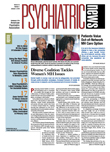Most physicians agree on the right things they should do, but may not always do them in actual patient care, according to the first survey on professionalism in medical practice funded by the Institute on Medicine as a Profession, an organization affiliated with Columbia University.
Eric Campbell, Ph.D., an associate professor at the Institute for Health Policy and the Department of Medicine at Massachusetts General Hospital and Harvard Medical School, and colleagues asked 3,504 practicing physicians about their attitude and action in areas of medical professionalism ranging from conflicts of interest to professional self-regulation. They found fairly consistent agreement with the guidelines of professionalism advocated by leading medical associations, though large gaps exist between these guidelines and actual behaviors reported in the survey. The study was published in the December 4, 2007, Annals of Internal Medicine.
The researchers limited their stratified random survey sample to currently practicing U.S. physicians specializing in internal medicine, family practice, pediatrics, anesthesiology, surgery, and cardiology. The response rate was 52 percent, or 1,662 responses out of 3,167 eligible participants. About one-quarter of respondents were female, and 72 percent were white.
The survey first asked physicians whether they agreed with a number of statements regarding professionalism as the norms of medical practice. These statements are based on a set of principles in medicine that have been established by the American College of Physicians and the American Board of Internal Medicine. Most of these statements, including “Physicians should minimize disparities in care due to patient race or gender” and“ Physicians should put the patient's welfare above the physician's financial interests,” drew more than a 95 percent positive response as respondents said they “agree somewhat” or “agree completely” with these statements. The only statement for which agreement fell below 80 percent was “Physicians should undergo recertification examinations periodically throughout their career” (77 percent).
The second part of the survey questioned physicians about their own behaviors and how they correspond to these principles using examples of specific situations. For example, a survey question asked whether the physician would inform his or her patient of potential financial conflict of interest before making referrals to a care facility. Some of the self-reported behaviors were consistent with the attitude of professionalism—almost all respondents reported being honest with a patient or patient's family on medical issues, and few said they have breached patient confidentiality.
Some Principles Ignored
However, large gaps were exposed in other responses to professional behaviors. One of the principles least applied by physicians was fulfilling professional responsibilities, including self-regulation. Forty-five percent of the respondents who knew of another impaired or incompetent physician in their hospital or group practice in the past three years did not always report the person to the institution or proper authorities, even though 96 percent had agreed, in the first part of the survey, that such colleagues should be reported.
Similarly, 46 percent of the respondents who had direct knowledge of serious medical errors in the past three years failed to report the errors at least once, while 93 percent had agreed with the statement saying that physicians should do so.
While almost 90 percent said they felt “very prepared” or“ somewhat prepared” to critically evaluate new clinical knowledge, only one-third had undergone a competency assessment by a provider organization or health plan, and 10 percent had served as a reviewer for a professional journal.
Financial Stakes Unrevealed
Almost a quarter of the respondents said they would refer patients to a local imaging facility in which they had a financial investment, while not telling the patient about this potential conflict of interest.
“Measurement is the beginning of a systematic process of improvement,” the senior author of the study, David Blumenthal, M.D., M.P.P., said at a press conference announcing the results. “Neither regulations nor competition are sufficient to ensure that we have an adequate and functioning health system,” said Blumenthal, a director of the Institute for Health Policy at Massachusetts General Hospital and a professor of medicine and health care policy at Harvard Medical School. He called on all physicians to apply the ideals of professionalism in patient care in today's difficult health care environment.
“Social desirability and bias might result in an overreporting of the endorsement of attitudes and an underreporting of behaviors that are not consistent with social norm,” Campbell acknowledged.
An abstract of “Professionalism in Medicine: Results of a National Survey of Physicians” is posted at<www.annals.org/cgi/content/abstract/147/11/795>.▪


